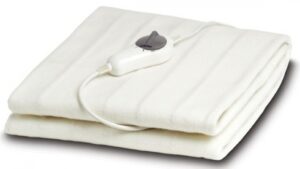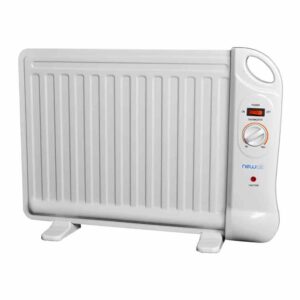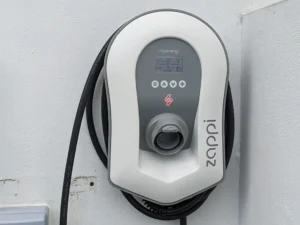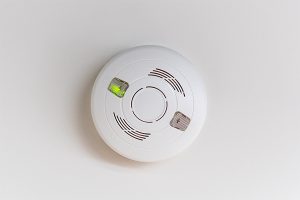We’re all lucky to be alive at a time full of modern conveniences, thanks to electricity. We never have to worry about freezing to death during cold winter months. We even use electricity to help decorate our homes with bright lights during the holidays. Unfortunately, the same things that provide us with the most comfort and cheer are also the same things that could cause major safety hazards if we’re not careful.
This doesn’t mean we should be paranoid about our helpful home appliances and decor; we can all enjoy our lives much more if we know the dangers and are prepared for them.
Here are some common electrical appliances you might already have in your home, and the most important things you need to know to use them safely.
Electric Blankets

Electric blankets are a great way to stay warm in the winter without spending too much money on portable or central heating. There are different kinds of electric blankets; some are meant to be placed under your linens, while others you can throw over you while you sleep.
How to choose a safe electric blanket
- Only buy from established manufacturers and retailers.
- Look for the safety seal.
- Avoid online sellers on marketplaces like Amazon and eBay. They might be knockoffs or manufactured abroad where the safety standards are different.
- Don’t buy second-hand items either, since they could be old or damaged.
Many modern electric blankets have a slew of safety features such as:
- Waterproof fabric
- Fast heating
- Detachable controls for easy washing and cleaning
- Auto-shutoff timers to prevent overheating
Running costs
Around four cents/hour. You only have to run it for 10-30 minutes before switching it off.
Storage tips
- Do not place heavy items on top of it.
- Do not fold or crease it; instead, roll it loosely or hang it in a closet.
- Always store in a cool, dry place, away from any damp or moist areas.
How to use electric blankets safely
- Use according to manufacturer’s instructions only.
- Check the instructions before washing and cleaning the blanket.
- Warm it up for 10-30 minutes before bed. Switch off before bed, or use a blanket with a pre-set timer.
- Do not use the blanket the whole night; there is a risk of overheating.
- Do not use on a person who is insensitive to heat, like infants, the elderly, and people who are sick.
- Do not use the blanket while wet.
When to replace your electric blanket
Examine your electric blanket regularly before use. Replace it if you notice any of the following signs:
- Worn or frayed fabric
- Visible wires poking out of the fabric
- Scorch marks or discolouration
- Damage to the controls, cord, or plug
- Buzzing sound when used
- Burning or unusual smell
Even if there’s no apparent damage, you should still replace your electric blanket if it’s more than 10 years old.
Portable Heaters

Portable electric heaters are a practical choice if you don’t need heating all around your home. They can effectively heat up a small room or space at a fraction of the cost.
How to choose a safe portable heater
Your portable heater should have passed national safety standards. Avoid second-hand heaters; buy reputable brands directly from the manufacturer. Look for the following safety features when choosing an electric heater:
- Automatic cut-off timer
- Tip over sensors
- Overheat sensors
- Touch sensors
- Drip protection
- Long, durable power cord
Running costs
Depending on the type of heater, around 30-60 cents/hour.
Storing tips
- Store unplugged and away from humid or damp areas of the house.
- Wipe it down regularly to reduce dust build-up.
How to use portable heaters safely
- Set your heater on level ground to avoid it getting knocked over.
- Do not drape anything over the heater. Do not use it to dry clothes.
- Do not use in damp areas like the bathroom, unless it is designed for that purpose.
- Do not overcrowd the heater. Leave plenty of space around it. Do not set it directly against the wall.
- Place it at least a meter away from combustible materials.
- Never leave a space heater unattended. Switch off before bed.
When to replace your portable heater
Make sure to regularly inspect your heater for damage and deterioration. Here are some signs that your heater might need repair or replacing:
- Increased electric bill
- Temperature fluctuations
- Signs of corrosion
- Damaged or frayed power cords
Christmas Lights

Christmas isn’t Christmas without holiday decorations. Lights are a fun and festive way to add cheer to any home for the Yuletide season.
How to choose safe Christmas lights
- Choose LED lights over old incandescent or filament ones. They are safer and more cost-effective.
- Beware of purchasing foreign or knockoff brands, especially online.
- Make sure that all outdoor lights have the appropriate weatherproof rating.
Running costs
For LED lights, less than one cent/hour. For incandescent lights, up to 22.96 cents/hour.
Storing tips
- Keep away from children.
- Dismantle and pack carefully as not to damage the lights.
- Avoid damp or extremely hot conditions.
- Store in a well-sealed container to prevent water damage and damage from rodents.
How to use Christmas lights safely
- Do not remove or replace bulbs while plugged in.
- Do not overload sockets or extension cords.
- Keep away from flammable decor and materials.
- Do not use outdoors unless designed for that purpose.
- Do not connect different lighting sets together, and don’t connect more than three.
- Do not use on metallic or dry trees.
- Use insulated hooks instead of nails or tacks to hang the lights.
- Replace defective bulbs with the same type and wattage as the original.
- Install a safety switch and use circuit breakers.
When to replace your Christmas lights
Old lights should be replaced with newer ones that pass modern safety standards. Other signs you should replace your lights are:
- Frayed or damaged cords
- Loose wires
- Busted bulbs
- Overheating
Conclusion
Electrical appliances don’t have to be a risk to you and your family. Take the necessary precautions, use carefully, and you can enjoy your appliances stress and worry-free.
When it comes to electrical dangers in household appliances, do not rely on your own ability to attempt repairs, but instead contact a qualified electrician in Perth – Westline Electrical Services.
Contact us today on (08) 9220 5201








